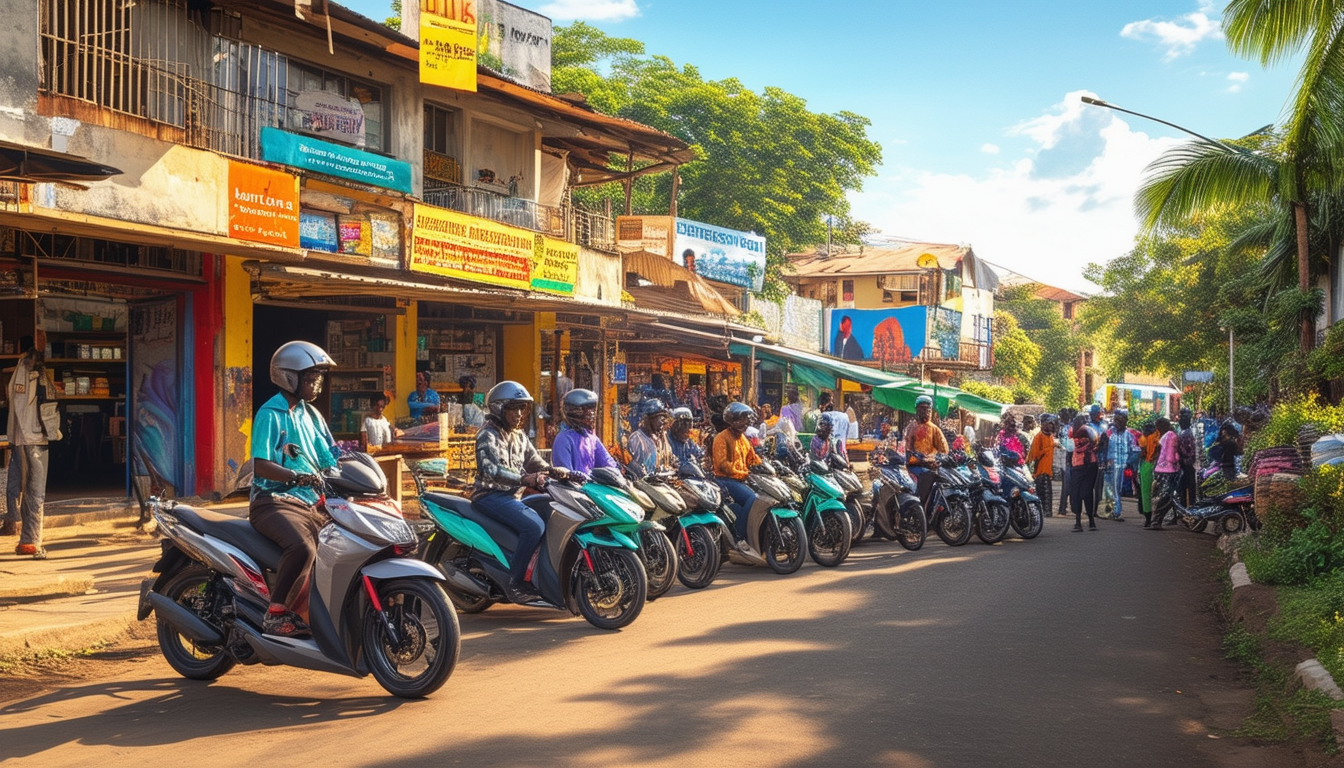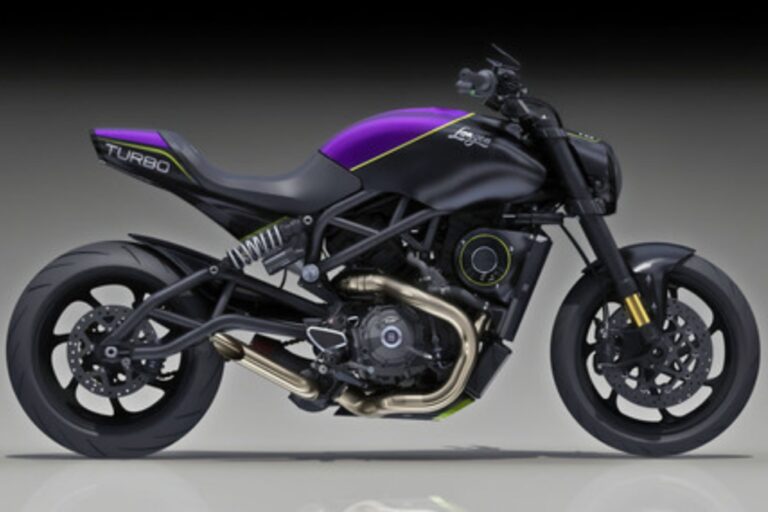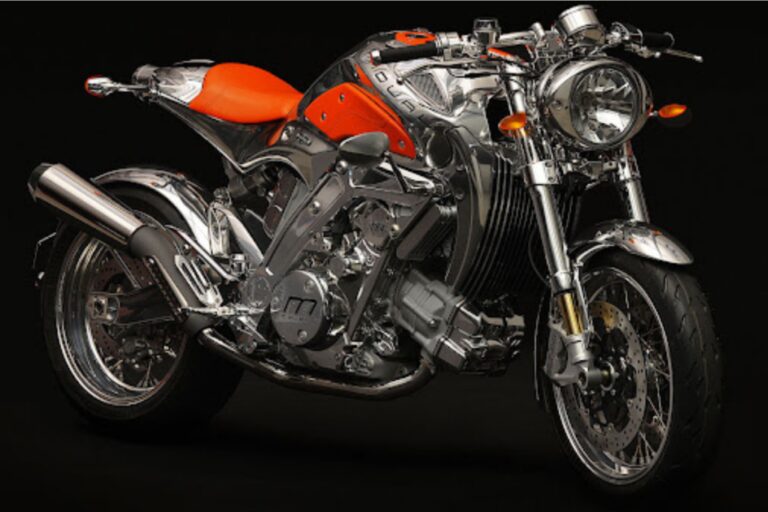An Increasing Number of Kenyan Businesses Embrace Electric Motorcycles for Delivery Services

In recent years, an increasing number of Kenyan businesses have started adopting electric motorcycles for their delivery services. This shift reflects a burgeoning trend towards sustainable transportation, as entrepreneurs recognize the advantages of using e-motorbikes over traditional fuel-powered options. With a focus on affordability and environmental friendliness, these electric bikes are becoming an integral part of the logistics landscape in Kenya. The vibrant ecosystem for electric motorcycles is not just changing the way goods are delivered, but also contributing significantly to the local economy and job creation.
The shift towards electric motorcycles in Kenya is gaining momentum as more businesses recognize their potential for enhancing delivery services. This transition is not just driven by environmental considerations but also by the economic advantages that electric bikes offer. As we delve deeper, we will explore how this change is revolutionizing the transport sector in Kenya.
The Rise of Electric Motorcycles in Delivery Services
In recent years, an increasing number of companies in Kenya have begun to adopt electric motorcycles for their delivery operations. This trend is a result of the surge in innovative startups, like Ecobodaa, which have emerged to meet the growing demand for efficient and sustainable transportation solutions. These startups are positioned well, catering to the needs of businesses that require quick and reliable delivery services.
A Sustainable Solution for Urban Mobility
Kenya, being home to Africa’s largest motorcycle taxi market, presents a unique landscape for the integration of electric bikes. With approximately 5.2 million people employed in motorcycle transportation, the move towards electric motorcycles supports the dual goals of affordability and environmental sustainability. Electric motorcycles are quieter and emit no exhaust, making them an ideal solution for the bustling urban environments of Kenyan cities.
Economic Benefits of Electric Motorcycles
The adoption of electric motorcycles is economically advantageous for businesses. These bikes offer lower operational costs compared to traditional fuel-powered motorcycles. Companies can allocate their resources more efficiently, with savings on fuel costs translating into reduced delivery prices for consumers. Additionally, as more local companies enter the electric motorcycle market, the competitive pricing dynamics further enhance affordability.
Government Support and Initiatives
The Kenyan government has shown support for this trend by implementing policies that promote the use of electric vehicles. By encouraging startups and existing companies to integrate electric motorcycles into their fleets, the government aims to bolster green transportation. This shift aligns with broader environmental goals, as Kenya is committed to reducing its carbon footprint.
The Future of Delivery Services in Kenya
With the unstoppable rise of technology, Kenyan businesses are quick to embrace innovations that enhance their operational efficiency. The integration of electric motorcycles into delivery services is a prime example of this trend. As more companies recognize the benefits of these vehicles, we can anticipate a significant transformation in delivery services, paving the way for a more sustainable and economically viable future.
Kenya is witnessing a significant transformation in its delivery services, thanks to the growing adoption of electric motorcycles. This shift is not just a trend; it’s a revolution led by innovative startups aiming to provide greener, more efficient transportation solutions. The embrace of electric bikes signifies a pivotal moment for businesses looking to modernize and enhance their logistics operations.
Embracing Green Technology
Many companies in Kenya are recognizing the benefits of green technology. Electric motorcycles decrease carbon footprints and help meet sustainability goals, allowing businesses to align with the increasing global emphasis on environmentally friendly practices. The move towards electrification not only aids in reducing emissions but also minimizes noise pollution, contributing to a healthier urban environment.
Cost-Effective Solutions
The transition to electric motorcycles offers substantial cost savings for businesses. With lower maintenance costs and the affordability of electricity compared to gasoline, companies can significantly reduce their overall operational expenses. Additionally, the rising prices of fossil fuels make electric bikes a more stable investment, ensuring predictable budgeting for transportation services.
Increased Efficiency
Electric motorcycles provide enhanced efficiency in delivery logistics. With quicker acceleration and less downtime for refueling compared to traditional bikes, they enable businesses to improve their delivery times. Furthermore, the quiet operation of electric bikes can facilitate deliveries in noise-sensitive areas, allowing for more strategic route planning.
Community and Job Creation
The rise of electric motorcycle startups in Kenya is fostering a sense of community and creating employment opportunities. By transitioning to electric models, companies not only contribute positively to the environment but also support local industries and stimulate economic growth. Many riders find new opportunities within the expanding e-mobility sector, demonstrating how this shift nurtures both workforce development and innovation.
Promoting Accessibility
One of the standout features of electric motorcycles is their accessibility. With over 5.2 million individuals engaged in motorcycle transport within Kenya, the shift to electric options makes transportation more accessible to a broader segment of the population. As more riders adopt electric bikes, there is a notable increase in available services that cater to diverse user needs, including deliveries and commuting.





